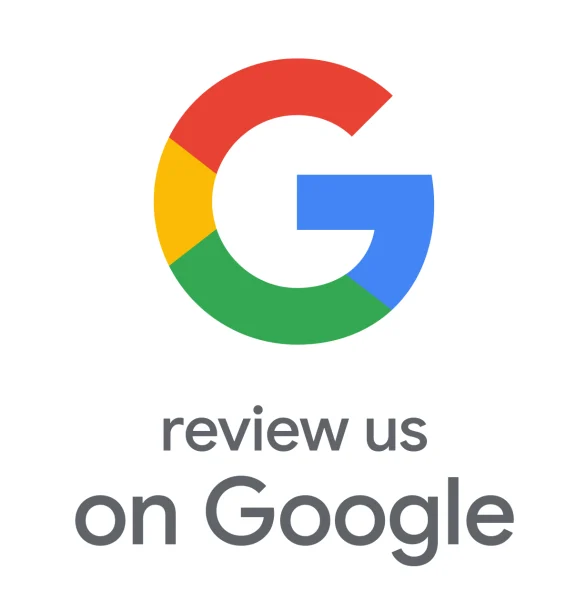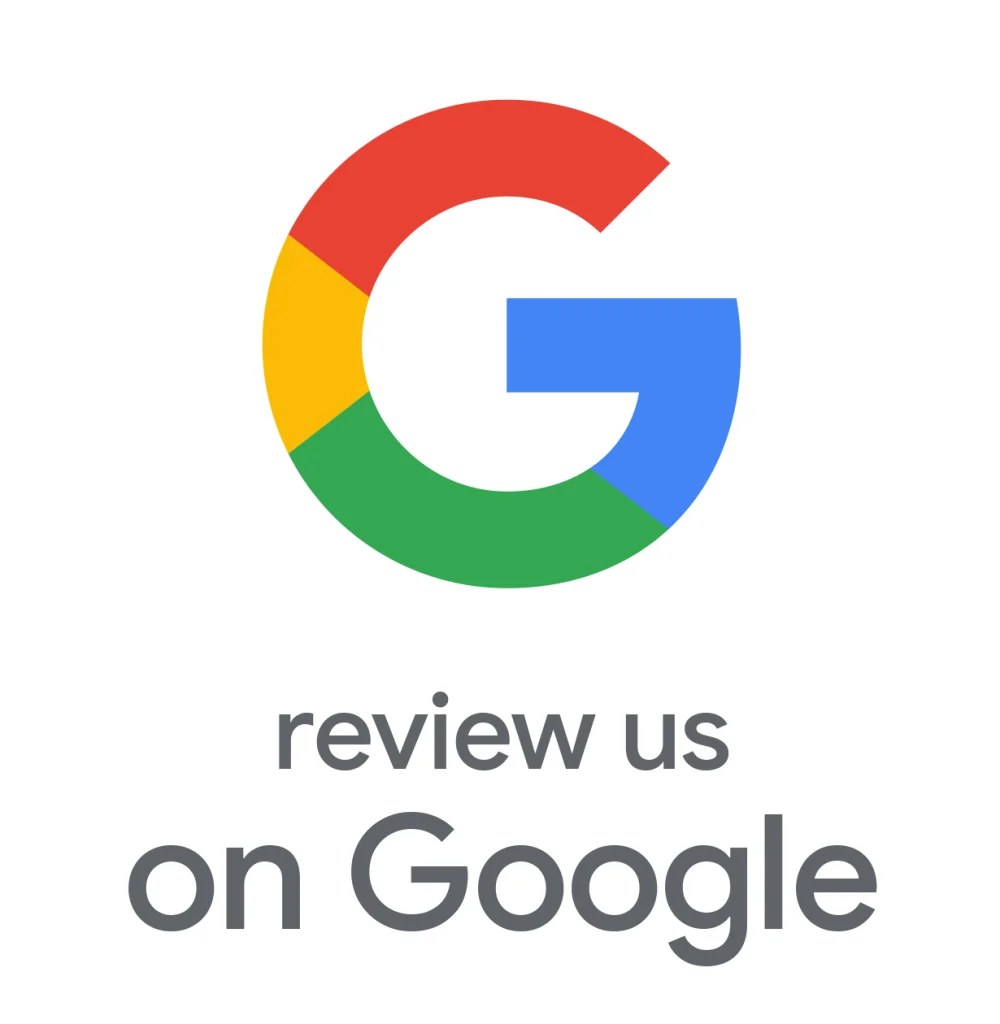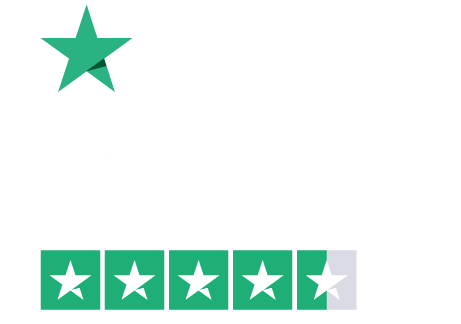The Entrepreneurial Imperative: Navigating a New Financial Era
The UK Business Landscape in a State of Flux
Right now, the business scene in the UK feels anything but stable. It’s fast, competitive, and constantly shifting. For someone starting a new venture, the real obstacles aren’t only about creating a good product or crafting the right marketing plan. The bigger challenge often comes down to money management. In the past, this was handled through paper files, clunky desktop tools, and endless spreadsheets. That approach, while once standard, simply doesn’t work anymore. The pace of the digital economy has outgrown it.
Because of this, companies across the UK are moving towards smarter, fully integrated accounting platforms. And this isn’t just a passing trend. Studies show that around six in ten firms are already using specialist accounting software, and nearly seven in ten have shifted at least some of their work to the cloud. Accountants themselves are driving much of this shift. Nearly half already work entirely in the cloud, and almost all (97%) say they trust cloud systems for secure storage, proof that the industry is moving decisively in this direction. What’s even more telling is their outlook: the majority believe cloud accounting will soon be the rule rather than the exception. Others think it may still be combined with traditional methods, but either way, the direction is clear. For businesses today, moving to the cloud is not optional anymore. It’s the step that separates those who can keep up from those who risk being left behind.

The Analogue Anchors: Common Financial Pitfalls
Running finances the old way on paper, with clunky desktop software, or endless spreadsheets is more than outdated. It’s risky. Many entrepreneurs slip up not just because they lack a plan, but because the very tools they lean on hold them back. Think about it: a desktop program that works on only one computer. No remote login. No real-time view of cash. There is no easy way for a business partner or accountant to step in quickly.
And cash flow? That’s where most businesses stumble. Poor record-keeping and late invoicing often choke the flow of money. Manual systems usually get updated weeks or months later, which means owners are basically guessing where they stand. On top of that, software updates have to be done by hand. Skip one, and suddenly your data is at risk, or worse, you’re no longer compliant with new rules. Even the basics, like paper files or local servers, are fragile. A fire, flood, or theft can erase years of records in a moment. This is why so many are moving to cloud-based accounting services. They’re faster, safer, and built for today’s pace.
The move to cloud accounting services isn’t just a matter of convenience. It’s a change in attitude. Instead of reacting when problems hit, owners gain live insights and make smarter decisions before things spiral. That shift, working ahead rather than catching up, shows the real benefits of cloud accounting for businesses. There’s another reason entrepreneurs feel more confident making the jump. Accountants themselves have already embraced cloud-based accounting solutions. Most work entirely in the cloud or at least in a hybrid setup. This trust isn’t just theoretical accountants now rely on cloud systems daily, using them for everything from bookkeeping to HMRC compliance. For entrepreneurs, that means the professionals they hire are already fluent in these platforms, making adoption much easier. So, for a small business, there’s no need to stress about technical know-how. Chances are that the accountant you hire is already an expert in cloud accounting tools. In fact, one business found that hiring a new accountant who was fluent in cloud software became the very reason they managed to turn things around.
The Core Drivers: Why Cloud Accounting Is the Only Choice for Growth
Pillar 1: The End of Manual Labor – Automation & Efficiency Gains
At the end of the day, the draw of a cloud accounting service is pretty straightforward. It cuts out the grunt work. All those hours once spent punching numbers into spreadsheets or double-checking bank statements? Gone. Modern cloud-based accounting solutions step in and do most of that for you. The automation isn’t just fast, it’s accurate too, often better than what people can manage when they’re tired or distracted.
Cash flow is where the difference really shows. With cloud accounting services, invoices don’t sit forgotten on someone’s desk. The system sends them, chases them, and even nudges late payers with reminders. That kind of consistency keeps the money moving and avoids the crunch that sinks so many small businesses.
Managing receipts used to be a constant hassle, with piles of paper taking up space and valuable hours lost to manual data entry. Now you can snap a quick photo and let the software’s OCR do the rest. It grabs the info, files it under the right category, and attaches the receipt straight to the account record. A small change, but it saves endless admin time. The hours saved can finally be reinvested into building the business instead of bookkeeping.

Pillar 2: Location Independence & Real-Time Insights
Old desktop systems kept everything chained to one spot. If you weren’t at that desk, you would be stuck. Cloud accounting completely removes that restriction. Suddenly, you can check the numbers on a laptop at home, your phone while traveling, or even a tablet in a café. Anywhere with Wi-Fi becomes your office. For almost half of UK accountants, the flexibility of cloud accounting is the biggest perk, and it’s easy to see why. It has reshaped how practices operate and how teams think about flexible work.
Now, access is only part of the story. What really matters is collaboration. With cloud accounting services, everyone plugs into the same live system. No more confusion over who has the latest file. Advisors, partners, or staff can all log in together and work on the very same set of figures. That’s a big shift from the chaos of emailing attachments back and forth. And here’s the thing: visibility changes everything. Cloud-based accounting solutions don’t wait for end-of-month updates. The dashboards refresh on their own, showing real-time cash flow, profit and loss, even the balance sheet’s health. One glance and you know where things stand. That’s power. Instead of reacting when problems blow up, business owners can spot the warning signs early and make moves before it’s too late.
Pillar 3: The Scalability & Affordability Advantage
Cloud accounting services are priced completely differently from the old-school model. No giant upfront bills for licenses. No money wasted on bulky servers. Instead, you subscribe. Month by month. Add what you need, drop what you don’t. Simple. For startups and small teams trying to grow fast, flexibility isn’t just nice, it’s survival as well as there’s scalability. With cloud-based accounting solutions, you don’t have to jump ship when the business expands. Start with the basics, such as invoicing and reports. As the company grows, it brings in new features, more users, even integrations. No messy migrations. No rebuilds. Just scaling up smoothly. On top of that, the cloud eliminates much of the administrative burden: no manual patches, no late-night backups, and no stacks of paperwork.
Automation saves time; real-time data sharpens decisions, and scalability keeps the growth curve smooth. Hours saved get reinvested. Better decisions mean stronger results. Those results feed more growth. And the subscription model? It keeps pace without breaking a sweat. Research even shows it: cloud-powered firms are reporting profit growth of around 74%, compared to 65% for those stuck in the past. The numbers speak for themselves. One more thing: resilience. With data tucked safely off-site, a fire, flood, or hardware failure doesn’t take you down. Cloud accountancy services are built with redundancy. That’s just a fancy way of saying your information is backed up in more than one place. So even if disaster strikes, the books stay safe, and business keeps moving.
| Category | Cloud Accounting | Traditional Accounting |
|---|---|---|
| Accessibility | Accessible from any device, anywhere with internet. | Limited to a single computer. |
| Cost Structure | Subscription-based (SaaS), scalable. | High initial software + IT infrastructure costs. |
| Software Updates | Automated, continuous, always compliant. | Manual updates required by the user. |
| Scalability | Easily scaled by adding users, features, integrations. | Rigid and difficult to adjust; often requires a new system. |
| Data Security | Bank-level encryption + automated backups. | Vulnerable to single point of failure (crash, fire). |
| Data Visibility | Real-time dashboards, up-to-the-minute financials. | Manual updates; data often weeks or months old. |
The Unavoidable Catalyst: Making Tax Digital (MTD)
A Mandate for Modernization
Tax rules don’t usually push businesses to change overnight. But MTD is different. The government’s Making Tax Digital program has turned into a big reason why so many firms are moving to cloud accounting in the UK. The logic behind it is straightforward: billions get lost every year through mistakes, sloppy records, or old systems. So, what’s the fix? MTD says every business must keep proper digital records and send data through compatible software that links straight to HMRC. No more piles of receipts sitting in drawers. No more late-night uploads of half-finished spreadsheets. The system must connect directly to HMRC. At first glance, it may seem like just another regulation, but in plain terms, it actually lightens the load. By eliminating small errors, it speeds up reporting and moves the process toward real-time accuracy. For business owners, that means fewer penalties, less stress, and a tax system that finally works with them rather than against them.
Prefer watching instead?
Here’s a video summary for you


From VAT to ITSA: The Phased Rollout and Upcoming Deadlines
MTD’s phased rollout began with Value Added Tax (VAT) and is now expanding to Income Tax Self-Assessment (ITSA). This phased approach ensures a gradual transition for businesses of all sizes.
| Category | MTD for VAT | MTD for ITSA |
|---|---|---|
| Who it Applies to | All VAT-registered businesses, regardless of turnover. | Unincorporated sole traders and landlords. |
| Effective Date | Mandatory for all from April 2022. |
April 2026: Income over £50,000. April 2027: Income over £30,000. |
| Key Requirements | Keep digital records and submit VAT returns via MTD-compatible software. | Keep digital records and submit four quarterly updates of income & expenses to HMRC. |
The rollout of MTD for ITSA introduces a significant change in financial reporting. Instead of a single annual tax return, affected sole traders and landlords will now need to submit four quarterly updates on their income and expenditure. At the end of the tax year, a final declaration will be required to finalize all records. Non-compliance is not an option; HMRC can impose fines and a points-based penalty system for late submissions and failures to use compatible software.
Solving the MTD Puzzle: How Cloud-Based Accounting Simplifies Compliance
For many business owners, the UK’s MTD rules can feel like a maze. But this is exactly where cloud accounting and tax services come in. These platforms are not just “HMRC-recognized” they’re built from the ground up to take the stress out of compliance. Instead of juggling spreadsheets and paperwork, the system automatically keeps digital records in the exact format HMRC requires, including VAT on sales and any necessary adjustments for tax purposes. Here’s where the real time-saver comes in. With modern accounting software for entrepreneurs, tax returns can be submitted directly to HMRC with a single click. The API connection removes the risk of human error that usually creeps in when people copy figures into a separate government portal. Add in extras like live bank feeds and automatic expense categorization, and suddenly quarterly MTD reporting becomes part of the routine, not a last-minute panic at the end of the year.
It’s worth noting that MTD isn’t only about red tape. It is encouraging businesses to modernize. By requiring digital systems, HMRC is pushing owners into tools that improve efficiency, cut errors, and free up time. And while there is an initial cost, studies show the software is still “an affordable investment for the majority of small businesses.” In practice, that means most firms end up stronger, more profitable, more resilient once they’ve made the switch. For UK entrepreneurs, MTD isn’t just another compliance headache. It’s the nudge toward a smarter, digital way of working that many would have put off if it weren’t required.
The Path to Trust: Overcoming Concerns & Ensuring Security
Demystifying Data Security: Addressing the Fear of the Cloud
Not every entrepreneur is ready to switch to cloud accounting. The hesitation usually circles back to one thing: security. And to be fair, even accountants share that worry. In fact, over half point to cyber-attacks as their top concern, while 43% highlight data safety. Some also mention shaky internet connections and system reliability as reasons to hesitate. And yet, here’s the surprising part. Almost all of them, 97% to be exact, say they mostly or completely trust the cloud to handle their work and store their data. That’s not blind optimism. It shows they’ve weighed the risks and know how strong today’s protections really are. So, what does that mean for business owners who are still unsure? If the very professionals who live in these systems every day are confident, maybe the fear isn’t as big as it seems.
The Reality of Cloud Security
Let’s be honest, most small businesses can’t match the kind of protection big tech provides. That’s why so many are turning to cloud accounting services in the UK. These platforms use what’s often called “bank-level security,” things like heavy-duty encryption, advanced firewalls, and two-step logins. For a small firm, trying to build all that in-house would be wildly expensive, not to mention a constant headache to maintain.
And the point is, providers don’t just set it up once and walk away. They’re updating in the background all the time, keeping pace with new threats and new rules. Data isn’t just stored; it’s encrypted and backed up in several places at once. Compare that with the old-school method, a single office server locked in a room with a key. One fire, one break-in, one crash and everything is gone. No wonder accountants are confident. Handing security to specialists simply makes more sense. But security is only half the story. The bigger picture is about preparing for the future. Cloud adoption has become the foundation for AI. The numbers are clear: more than 9 out of 10 UK firms using AI are already on the cloud. Without that power and accessibility, those tools can’t even run properly. Which is why, by making the switch to cloud accounting, entrepreneurs aren’t just solving today’s problems. They’re also setting themselves up for what’s coming next, AI-driven systems that boost speed, cut errors, and open the door to the next wave of growth.

From Challenge to Success: UK Entrepreneur Case Studies
The benefits of cloud accounting are not abstract concepts but are demonstrated in the real-world experiences of UK entrepreneurs who have transformed their operations through it.
Case Study 1: A Small Business Moving Beyond Outdated Methods
For years, this entrepreneur relied on a conventional accountancy firm. The experience? Far from ideal. The service was often described by the entrepreneur as “stuffy, expensive, and uncommunicative.” When MTD arrived, the firm simply wasn’t ready. Errors piled up, the threat of fines loomed, and the business owner was left doing hours of bookkeeping, something they had neither the time nor the skill for.
Eventually, enough was enough. They decided to switch to cloud accounting, choosing a proactive accountant who specialized in Xero. The transition couldn’t have been easier. In fact, the business owner called it a “breeze.” Their outdated, paper-heavy processes were suddenly replaced by something streamlined, reliable, and far more efficient. The difference was night and day. An outsourced cloud accounting service now handles the essentials—payroll, VAT, tax returns, and bookkeeping. The entrepreneur finally regained their evenings. Instead of drowning in admin, they focused on the work that actually grew their business. The stress of dealing with tax authorities vanished too. As the owner put it, for the first time, they felt truly secure knowing their accounts were accurate and up to date.
Case Study 2: The International Business Streamlining Complex Operations
A global technology recruitment firm, operating across the UK, US, and Ireland, faced a different kind of financial struggle. Their accounts were scattered across three separate systems. The result? A dreaded “month-end headache” filled with endless consolidations, frustrating reconciliation errors, and delays. On top of that, juggling multiple currencies was messy, and preparing accurate, useful reports for the board became a slow, complicated process.
The breakthrough came when the company adopted a single cloud accounting platform with AccountsIQ. By bringing everything under one roof, the firm eliminated the pain of fragmented systems. Multi-entity and multi-currency tasks suddenly became far simpler. Manual adjustments dropped, consolidations became smooth, and the finance team finally gained reliable, consistent reporting to guide strategy. They even swapped out clunky Excel-based expense forms for an automated app, cutting errors and saving huge amounts of time. This story highlights how the benefits of cloud accounting for businesses stretch far beyond small firms. For entrepreneurs, the big win might be saving time or finding peace of mind. But for an international organization, the same technology delivers something very different: control over complex operations, smoother reconciliations, and the ability to manage currencies across borders.
That’s the beauty of one integrated cloud accounting service. It adapts. The same system that helps a small local business offload admin can also support a multinational’s toughest accounting challenges. It proves that cloud accounting for UK businesses isn’t one-size-fits-all; it’s versatile enough to solve problems at every level of scale and complexity.
Choosing Your Cloud Accounting Partner: A Guide to the UK Market
The Role of a Cloud Accountant: More Than Just Bookkeeping
Truth is, deciding to switch to cloud accounting doesn’t mean you’re suddenly left on your own. Quite the opposite. The whole point of cloud-based accounting solutions is to make collaboration with an accountant easier, whether they’re in the same city or halfway across the world. And here’s the point: a good accountant isn’t just there to record numbers. An outsourced cloud accounting service can act more like a financial partner. They’ll help keep cash flowing, spot ways to increase profits, and free you from spending hours on jobs that don’t grow your business. Some providers go further, offering full cloud accounting outsourcing services that cover daily bookkeeping, MTD compliance, tax filings, and payroll. That’s more than convenience. For a business owner, it’s peace of mind, knowing someone experienced is keeping things in order while you focus on customers, growth, and the work you’re good at.
A Deep Dive into the Top Platforms: A Feature and Use-Case Guide
The UK market is full of options when it comes to cloud accounting services. Each platform has its own strengths, quirks, and best-fit users. The variety is actually a good thing. It means there’s a small business cloud accounting tool for every stage of an entrepreneur’s journey, whether you’re just starting out or scaling globally.
Xero: Probably the most familiar name in digital accounting here in the UK. Business owners love it for its clean design and how easily it plugs into hundreds of third-party apps. It makes complex finances simple and works well for firms of all sizes. Plus, it’s HMRC-recognized for MTD, covering both VAT and ITSA.
QuickBooks: Known for being flexible and fully featured. QuickBooks comes with strong support including round-the-clock help and is popular among freelancers and small but growing businesses. Its “error-check your return” tool for VAT makes it stand out, and its scalability means it grows with you.
FreeAgent: A favourite for sole traders and freelancers. It’s designed to keep tax compliance simple, especially for MTD. One unique feature is the “Tax Timeline,” which gives live updates on calculations and deadlines. And for NatWest and Mettle customers? It’s completely free.
Sage: One of the longest-standing providers in the UK. Sage is a heavyweight platform that shines in more complex setups. With tiered pricing and advanced reporting, it’s particularly good for firms planning significant growth or accountants managing multiple clients.
The real takeaway is that no single tool is “the one” for everyone. FreeAgent suits solo workers, QuickBooks covers growing companies, and Sage handles the heavy-duty, multi-entity world. This tiered setup makes choosing less stressful. Entrepreneurs can start with what fits today, knowing they can scale up later without being locked in. That’s why entrepreneurs switching to cloud accounting feel more confident the choice isn’t final, it’s flexible, and it grows alongside the business.
| Software | Best For | Key Features | Unique Selling Proposition |
|---|---|---|---|
| Xero | Businesses of all sizes; service-based businesses. | Extensive app integrations; real-time bank feeds; automated reconciliations; invoicing. | Most user-friendly for business owners and accountants. |
| QuickBooks | Freelancers; growing businesses; those with complex needs. | 24/7 support; error-check VAT tool; payroll; inventory tracking. | Excellent support network and comprehensive features. |
| FreeAgent | Freelancers and sole traders. | Tax-focused tools; direct filing to Companies House; Tax Timeline. | Free for NatWest/Mettle account holders. |
| Sage | Businesses expecting significant growth or with complex structures. | Automated VAT; multi-currency support; robust reporting. | Scalable for complex accounting needs and large organisations. |
FAQs
How can cloud accounting help small businesses in the UK?
For small businesses, every hour counts. Cloud accounting helps by showing a live picture of money coming in and going out, without waiting for month-end reports. Invoices can be sent in a few clicks, and receipts stored instantly with a photo. Owners can check cash flow from a laptop or phone, even on the move. It also means accountants and business owners see the same figures at the same time, reducing mistakes and cutting down on endless admin.
Is cloud accounting secure for my business’s financial data?
It’s natural to be cautious about security, but in many ways cloud accounting offers stronger protection than traditional methods. Information is encrypted, login systems are layered, and data is backed up in several protected locations. If one server fails or a device is stolen, your records stay safe. Providers also roll out security updates automatically, closing gaps before they become problems. That means your financial data is constantly guarded without extra effort on your part.
Why use cloud accounting in the UK?
Let’s be clear: cloud accounting in the UK isn’t just a trend. It has become the smarter way to manage money. Instead of piles of receipts or waiting weeks for updates, business owners can see their numbers instantly, wherever they are. It cuts down mistakes, saves time, and makes tax compliance with HMRC’s Making Tax Digital far less painful. The real bonus is flexibility: as your company grows, the system scales with you. No expensive upgrades, no starting over, just software that moves at your pace.
Can cloud accounting help me manage taxes in the UK?
Yes, it makes a huge difference. HMRC’s Making Tax Digital rules mean businesses must keep digital records and use approved software. That’s exactly what cloud accounting is built for. It logs VAT, income, and expenses automatically and pulls them into neat reports. Most systems even link straight to HMRC, so returns can be filed with a single click. The real benefit? No messy spreadsheets, fewer mistakes, and a lot less panic when tax deadlines hit.
How does cloud accounting improve efficiency for UK entrepreneurs?
The truth is that a lot of time is lost on small admin tasks. Cloud accounting removes much of that. Invoices can be raised and sent quickly, expenses logged on the spot, and figures update the moment transactions happen. No waiting around for end-of-month reports. Decisions get made faster because the numbers are always current. On top of that, accountants and owners work on the same live data, so there’s no duplication. Less admin, fewer errors, and more focus on growth.
How do I get started with cloud accounting for my business?
Starting out isn’t as complicated as it sounds. First step—pick a cloud accounting tool that fits your business. In the UK, many owners go with Xero, QuickBooks, Free Agent, or Sage. Once chosen, connect to your bank so transactions flow in automatically. Old records can be imported, or you can start fresh with clean data. To make life easier, lots of firms team up with a cloud accounting service that handles setup and training. Within a short time, you’ll be working faster and without paper.
Conclusion: The Future is Cloud-First
The shift to cloud accounting in the UK is no longer up for debate. It’s already here, and it’s only picking up speed. Businesses want efficiency. They need flexibility. They’re looking for smarter ways to handle money. That’s why today, UK entrepreneurs are closely linked to cloud accounting. On top of that, the government’s Making Tax Digital drive has pushed everyone forward, proving that the benefits of cloud accounting for businesses are no longer optional. But let’s be clear, choosing to switch to cloud accounting isn’t just about trying a new piece of software. It’s a bigger play. It makes businesses tougher, cuts down compliance stress, and frees up an owner’s most asset in time. And here’s the part that really matters. A cloud accountancy service doesn’t just help today; it lays the foundation for the future. With AI-powered tools becoming the norm, the cloud is the platform that makes them possible. So, the real question for entrepreneurs isn’t if they’ll adopt cloud, it is how soon? Those who act quickly will gain the edge. The future of business is digital, and its foundation is already laid. It’s built on clouds.
About the Author:
AURANGZAIB CHAWLA

Aurangzaib Chawla is a UK-based tax advisor and Managing Partner at Lanop Business & Tax Advisors.
With nearly two decades of experience, he supports individuals, landlords, and SMEs with proactive tax planning and compliance. Known for simplifying complex tax legislation, Zaib helps clients minimise liabilities while building sustainable, tax-efficient strategies for long-term success.
Let’s talk through your options, no jargon, no pressure.
About the Author:
AURANGZAIB CHAWLA
Aurangzaib Chawla is a UK-based tax advisor and Managing Partner at Lanop Business & Tax Advisors. With nearly two decades of experience, he supports individuals, landlords, and SMEs with proactive tax planning and compliance. Known for simplifying complex tax legislation, Zaib helps clients minimise liabilities while building sustainable, tax-efficient strategies for long-term success.
Let’s talk through your options, no jargon, no pressure.
Get in touch
Monday to Friday 9am – 6pm








